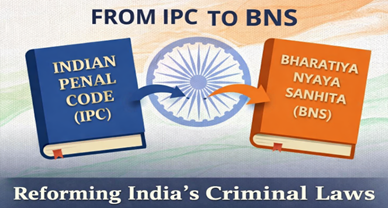A Case Study of the Controversy of Baburao’s Character and The Great Indian Kapil Show
In the finale episode of Season 3 of “The Great Indian Kapil Show” that was aired in September 2025 comedian Kiku Sharda, a regular cast of the show performed a skit impersonating the Baburao Apte character from movie “Hera Pheri” which was played by Paresh Rawal. And Baburao’s character is quite famous and very well known to the Indian audiences. This act was performed in the last episode when actor Akshay Kumar was the guest on the show, and since Akshay Kumar plays an important lead in the movie “Hera Pheri”, which is why characters from the movie were used in the skit. But what was likely meant to be a light-hearted comedy quickly turned out into a legal storm as Firos A. Nadiadwala, producer of the movie “Hera Pheri” franchise and owner of its rights, had sent a legal notice to Netflix and the producers of the show “The Great Indian Kapil Show” that alleged that this performance by Kiku Sharda on the show amounted to copyright and trademark infringement.
This legal notice demanded that the segment to be taken down from all streaming and social media platforms, along with a public apology within 24 hours and Rs. 25 crores in damages. Nadiadwala’s legal team also emphasised that Baburao is not merely a comic character but he is the “soul” of the movie “Hera Pheri” that carries immense creative and commercial value. The notice also accused Netflix and the show’s producers of violating Section 51 of the Copyright Act, 1957, that deals with copyright infringement and Section 29 of the Trademarks Act that prohibits unauthorised commercial use of registered trademarks and Section 14 of the Copyright Act that protects a producer’s exclusive right to publicly communicate or use a work in films or derivative performances.
Nadiadwala’s representatives issued a statement stating that “Baburao” is a trademark owned by the Nadiadwala family, hence use of the character without consent will amount to both trademark and copyright infringement. They argued that such an act will not only exploit the established popularity of the character for commercial gain but also undermine the creative integrity of the original work. This case has hence reignited a broader discussion on how intellectual property laws should apply to parody and mimicry in India’s entertainment landscape.
Parody, Fair Use, and Legal Defences
Parody is in the gray area of the Copyright law as it allows creators to imitate or exaggerate an original work for humour or criticism that is often protected as a form of free expression. In the United States’ landmark case of Campbell vs. Acuff-Rose Music, Inc. [510 U.S. 569 (1994)] it was established that commercial parody can qualify as fair use if it is transformative, adding new meaning or a commentary and not just merely copying.
Therefore, applying this judgement to the Baburao case, if Kiku Sharda’s portrayal of Baburao’s character in The Great Indian Kapil Show had clearly transformed the character by adding new humour or critique it is going to qualify as a parody, however if the act simply replicates or copies Baburao for entertainment without creative transformation, it is going to be considered as infringement. However, in India the fair dealing exception is narrower than in US as Indian courts recognise limited use of copyrighted material for purposes such as criticism or review, but this protection is rarely extended to parody. Hence, a comedian relying on parody as a defence is not enough; they also need to prove transformative intent and minimal commercial exploitation.
Bollywood vs. Hollywood: A Tale of Two Industries
The Baburao dispute also highlights a stark difference between Bollywood and Hollywood in IP enforcement, as we all know Hollywood studios are notoriously protective of their franchises and characters, swiftly initiating legal action against unauthorised use. But, the U.S. legal framework also provides clearer protection for parody and fair use, which balances creative freedom with ownership rights.
Whereas Bollywood, in contrast, has historically been more relaxed, often turning a blind eye to cultural references and mimicry. But as a result of the globalisation of Indian entertainment, which is because of digital platforms like Netflix, amplifying visibility, therefore making the producers more vigilant. The Baburao case is one such example that has marked a turning point where Indian creators are beginning to assert their legal rights over iconic intellectual properties.
Implications for the Entertainment Industry
This case is going to redefine how comedy and creative performances are crafted in India. Content creators, producers, and comedians will now need to get explicit permissions before referencing iconic characters, as a result of which comedy will become more cautious and scripted, but it will also ensure respect for original works and safeguard against costly lawsuits.
And for the audience, this will result in fewer spontaneous impersonations of beloved movie characters, but it will also encourage the rise of more original comedic content. The case is creating an environment of a maturing entertainment industry where creativity will coexist with legal accountability.
Conclusion
The legal battle between “The Great Indian Kapil Show” and the producers of “Hera Pheri” will make others aware and is going to serve as a powerful reminder that even humour must respect intellectual property rights. In an age where streaming platforms reach global audiences, the boundaries between homage, parody, and infringement are increasingly blurred; therefore, Comedians and content creators must understand and navigate these lines carefully.
Imitation may still be the sincerest form of flattery but in today’s world, it also results in a potential legal minefield as can be seen in the Baburao controversy, which has highlighted that laughter, while priceless, can come with a very real price tag if it crosses the boundaries of intellectual property law.
Author:– Prashasti Bhati, in case of any queries please contact/write back to us at support@ipandlegalfilings.com or IP & Legal Filing.
References:
- https://www.hindustantimes.com/entertainment/bollywood/firoz-nadiadwala-sues-netflix-kapil-sharmas-show-for-unauthorised-use-of-hera-pheris-baburao-seeks-25-crore-101758295577647.html
- https://www.cnbctv18.com/entertainment/explained-netflix-and-the-kapil-sharma-show-in-legal-trouble-for-using-baburao-character-from-hera-pheri-19681793.htm
- https://www.livelaw.in/high-court/kerala-high-court/kerala-high-court-metal-industries-generic-descriptive-trade-mark-307093
- https://supreme.justia.com/cases/federal/us/510/569/



